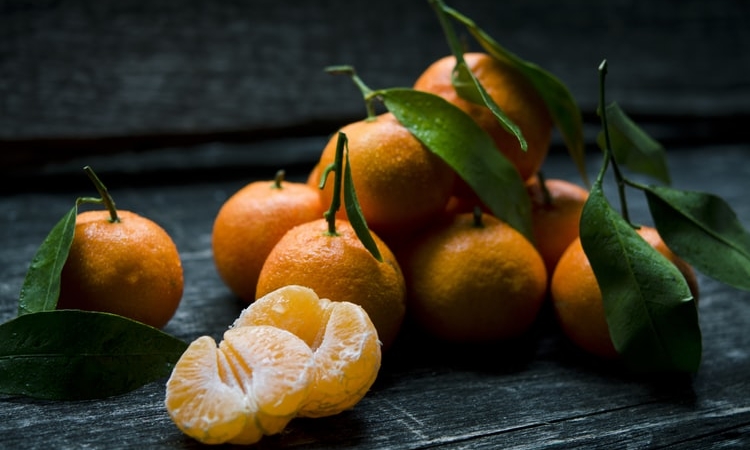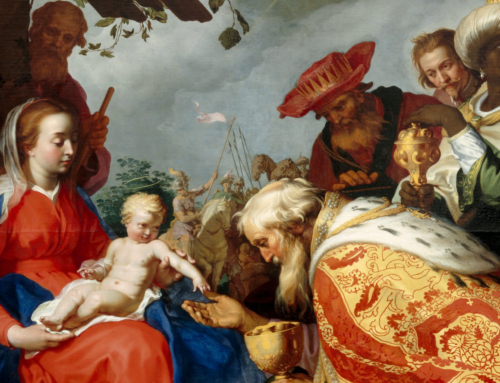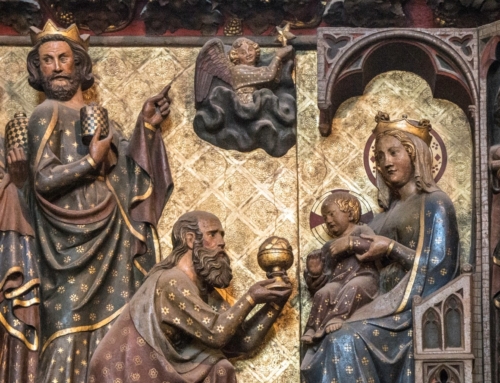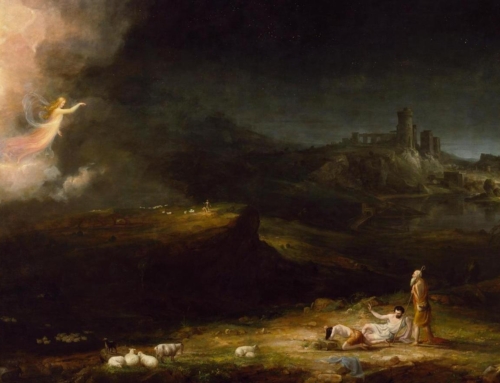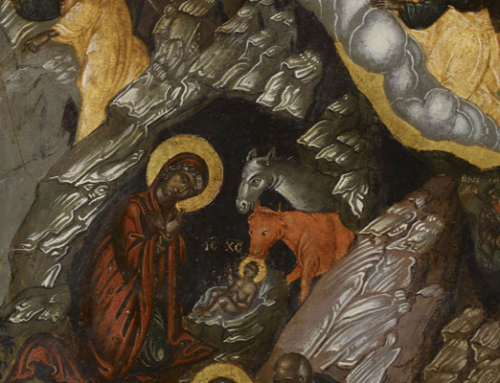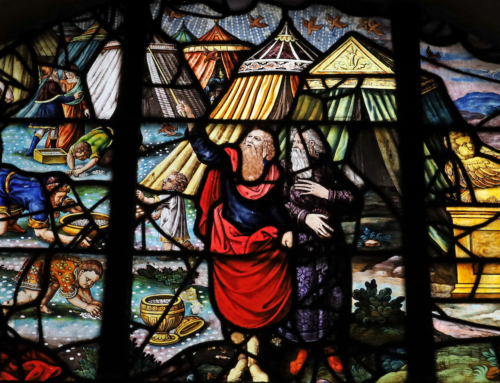O Emmanuel, our king and our lawgiver,
the hope of the nations and their Savior:
Come and save us, O Lord our God.
I didn’t expect to come into my office, turn on the lights, and find a clementine on the desk left for me by my Secret Santa. I love clementines, so I ate it quickly and with great appreciation; it had come and saved my Monday morning.
Tuesday morning I was even more delighted when not one but two clementines showed up on my desk! I devoured them speedily.
Wednesday morning, what was there waiting for me? Four clementines! I liked where this was going. I ate two that morning, and stashed the other two away for later on.
And the next day? Eight! They just kept multiplying! This time I kept one, and put the rest out in the kitchen for coworkers to have.
And what do you think was waiting for me on Friday morning—the last day of the gift exchange? Sixteen clementines. Six-teen. A citrusy embarrassment of riches. I didn’t take any for myself this time. I brought them all, cradled in my arms, to the kitchen for common enjoyment.
Now, my Secret Santa was just trying to mess with me with this game of daily multiplication. But what I took away from it was this: only when I had more than I wanted did I think to give anything away. The first clementines prepared the way for something greater—something far beyond my expectation. If on Monday or Tuesday I had known all that I had coming to me, my relationship to those first few little bundles of citrus delight would have been very different. I would have been willing to give away everything I was given so far—even if it meant getting none myself.
That’s because I would have had the promise of more to hang onto. The promise of much, much more.
Advent speaks to us about all we have already, and all that is still in store. The coming of Christ proclaims for us the promise of more. Even now, as Advent draws to a close, we don’t just prepare to remember Jesus’ first coming in Bethlehem. We also look forward to Christ’s return at the end of time in glory, and the promise—the invitation—he makes to us to share in that glory forever. Advent is about the art of joyful expectation—of seeing what we do not yet have and rejoicing in it nevertheless, because it is promised to us by the one who is trustworthy (Heb 10:23), who does not go back on his word (Ps 89:35).
Ours is the joy of the climber who, even as he reaches to the heights, already enjoys a vision of the mountaintop in his mind.
Ours is the joy of the patient farmer (Jas 5:7), the one who, in midwinter, looks out on his fields, thick with frost and lifeless, and rejoices because he knows beneath the surface there are many seeds waiting to burst forth. He rejoices knowing “the life sleeping in the earth is stronger than anything that can assail it” (Caryll Houselander, Wood of the Cradle, Wood of the Cross, 6).
Ours is the joy of gazing upon the Eucharist, which appears to be only simple bread and wine, and seeing with the eyes of living faith what is truly there: the Body and Blood of our Savior.
Our Emmanuel is the one who makes this great promise of eternal life to us: that he will come again, and change our lowly bodies into the form of his own glorified body (Phil 3:21), and that his kingdom will have no end. And so we can approach the manger on Christmas morning and see the newborn King lying in simple, unassuming glory—kind of like the glory of that single clementine, signifying that even more is yet to come. Much, much more.
✠
Photo by Jonathan Pielmayer on Unsplash

